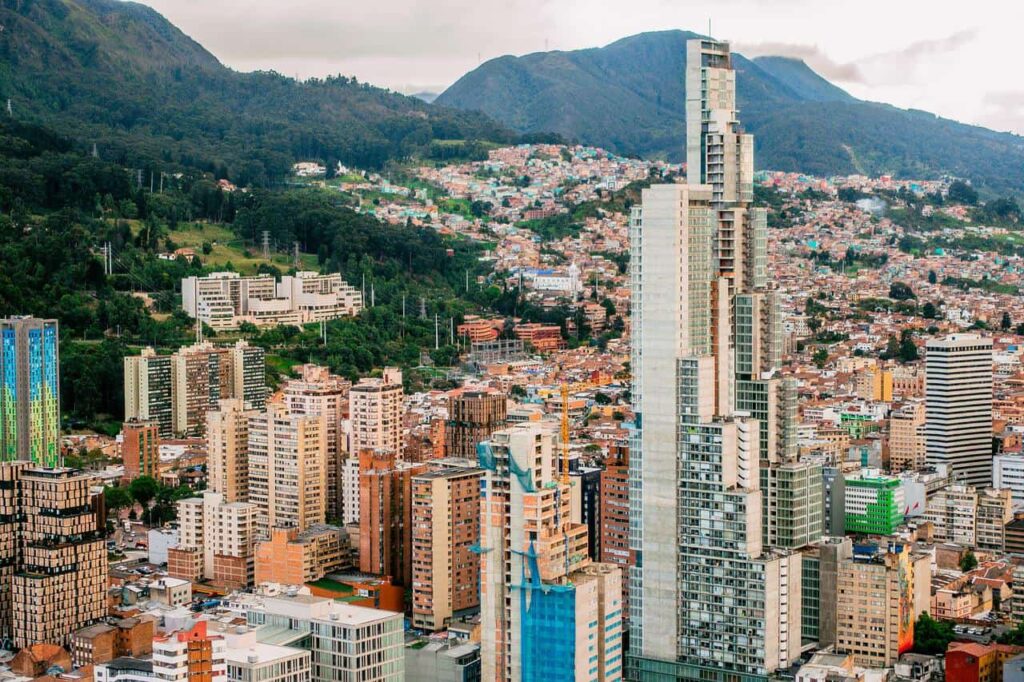Vestigo Volatility Score: 50%
President-elect Gustavo Petro has pledged to transition Colombia away from dependence on oil and gas. Petro’s pledge is ambitious given the significance of hydrocarbons to Colombia’s GDP. Crude oil production in Colombia accounts for around 10 percent of the total production in Latin America, an indication of the significance of the sector to Colombia’s revenue stream. With the current constraints in Colombia, which include high inflation and limited legislative opportunity due to Petro’s lack of a congressional majority, efforts to curb oil and gas exploration will likely be muted. Petro’s plight for further investment in sectors including tourism and renewables may bear fruit, but any net gain will unlikely be sufficient to offset revenue losses and population backlash from a potential environment with scaled back oil and gas production. We at Vestigo Strategy believe Petro’s mandate is overly fragile to risk spiraling socio-economic decline.
Constraints to Consider
- Fuel prices, to include cooking oils, would increase significantly in the event of any curbs on oil and gas production, with imports unlikely to offset a potential decline in the domestic market. Such a development would drive significant backlash.
- Colombia’s hydrocarbons sector represents 12 percent of GDP, underscoring the need for considerable investment in other industrial areas to offset potential revenue losses. A transition on such a scale, without stimulating recessionary conditions, would only be plausible in the long term, mitigating immediate risks to investors.
Petro faces legislative hurdles
Petro will take up position in the House of Nariño on August 7 after securing just enough votes, 50.4 percent of the final poll, in the second round of the presidential election in June. The election results highlight a deeply divided country. In addition, Petro does not hold a majority in Congress, which will likely force compromise on many of the president-elect’s more ambitious policy pledges. To secure a legislative majority, Petro’s political party, Gran Acuerdo Nacional, has made an unlikely deal with the Conservative Party. The Conservative Party has already demanded “respect for private property,” indication that an unchecked agenda will be difficult to achieve.
Population backlash?
Colombia’s population is dissatisfied with the socio-economic conditions of a post-COVID-19 world. The people are banking on pledges of increased public spending and more economic opportunity. However, Petro will need to tackle an environment where inflation currently hovers over 9 percent year-on-year, and criminality has risen exponentially. Support for Petro may rapidly fall if he oversees continuing decline in socio-economic opportunity. We can turn to Chile’s presidential incumbent Gabriel Boric to study how quickly support for a new leftist president can falter in an environment of similar social pressures. Polls indicate Boric experienced the quickest decline in support of any newly elected president since the Chilean dictatorship in 1990.
What are Petro’s energy market pledges?
Even if Petro overcomes his legislative battles and succeeds in enacting energy legislation in the face of challenging market pressures, any tangible change to oil and gas production would be muted in the short to medium term. One of Petro’s pledges is to ban hydraulic fracturing, also known as fracking. Note that there are currently only a limited number of fracking pilot projects currently in operation in Colombia. As recently as April 21, a Colombian judge suspended a fracking pilot project on the basis that interested parties failed to properly consult local communities. While Petro may upset markets by pledging to turn off the fracking taps, regulation already severely limits related efforts. In addition, Petro has not advocated for a ban on oil and gas production itself, only on future exploration endeavors. It therefore stands to reason that current projects, and current levels of production, would likely continue. This means that resulting impact from Petro’s pledges would be limited to the long term. This will demand that an electorate maintains confidence in Petro to reappoint him as Colombian president in four years. In the current panorama of high crime and deteriorating purchasing power, Petro will find it difficult to enforce regulatory pressure on the sector.
Consequentially, global market conditions, molded by the war in Ukraine, have forced spiraling fuel prices and driven inflation to a 21-year high. Appetite for the domestic production of hydrocarbons will only grow, if but to offset unruly economic conditions and population backlash. The constraints indicate continued reliance on domestic oil and gas production, rather than suppression of the sector, at least in the short term.
We base the percentage of our Volatility Score on the material constraints that determine the potential of a global event becoming a long-term global disruptor. We think that anything above the 75% mark should be studied with particular interest.

